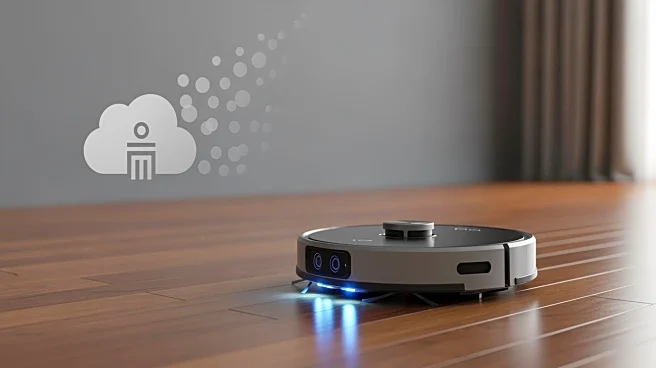What's Happening?
Neato Robotics, a U.S.-based company, has announced the shutdown of its cloud services for its robot vacuum cleaners, leaving them operable only in manual mode. This decision follows the company's closure in 2023 and affects users who can no longer control
their devices via the MyNeato app. Neato, acquired by Vorwerk in 2017, had previously promised to support its products for five years. However, advancements in cybersecurity standards and compliance obligations have made it unsustainable to maintain these legacy systems. The end of cloud support means users will lose the ability to customize routines or remotely control their vacuums.
Why It's Important?
The shutdown of Neato's cloud services marks a significant shift in the smart home appliance market, highlighting the challenges companies face in maintaining legacy systems amid evolving cybersecurity standards. Consumers who invested in Neato's products may feel the impact of reduced functionality, potentially leading to decreased trust in similar tech products. This development underscores the importance of sustainable product support and the potential risks associated with reliance on cloud-based services. It also raises questions about the future of smart home technology and the need for companies to adapt to changing regulatory environments.
What's Next?
As Neato's cloud services end, affected users may seek alternative solutions or products that offer similar functionalities. Vorwerk, the parent company, may face pressure to address customer concerns and provide support or compensation. The broader industry might see increased scrutiny on product lifecycle management and customer service commitments. Companies may need to reassess their strategies to ensure compliance with cybersecurity standards and maintain consumer trust. This situation could lead to discussions on the importance of transparency and reliability in tech product offerings.
Beyond the Headlines
The decision to shut down Neato's cloud services may have ethical implications regarding consumer rights and corporate responsibility. It highlights the potential vulnerability of smart devices dependent on cloud services, raising concerns about data privacy and security. The move could prompt discussions on the ethical obligations of companies to uphold promises made to consumers and the need for clear communication regarding product support. Additionally, it may influence future regulatory policies on tech product sustainability and consumer protection.















